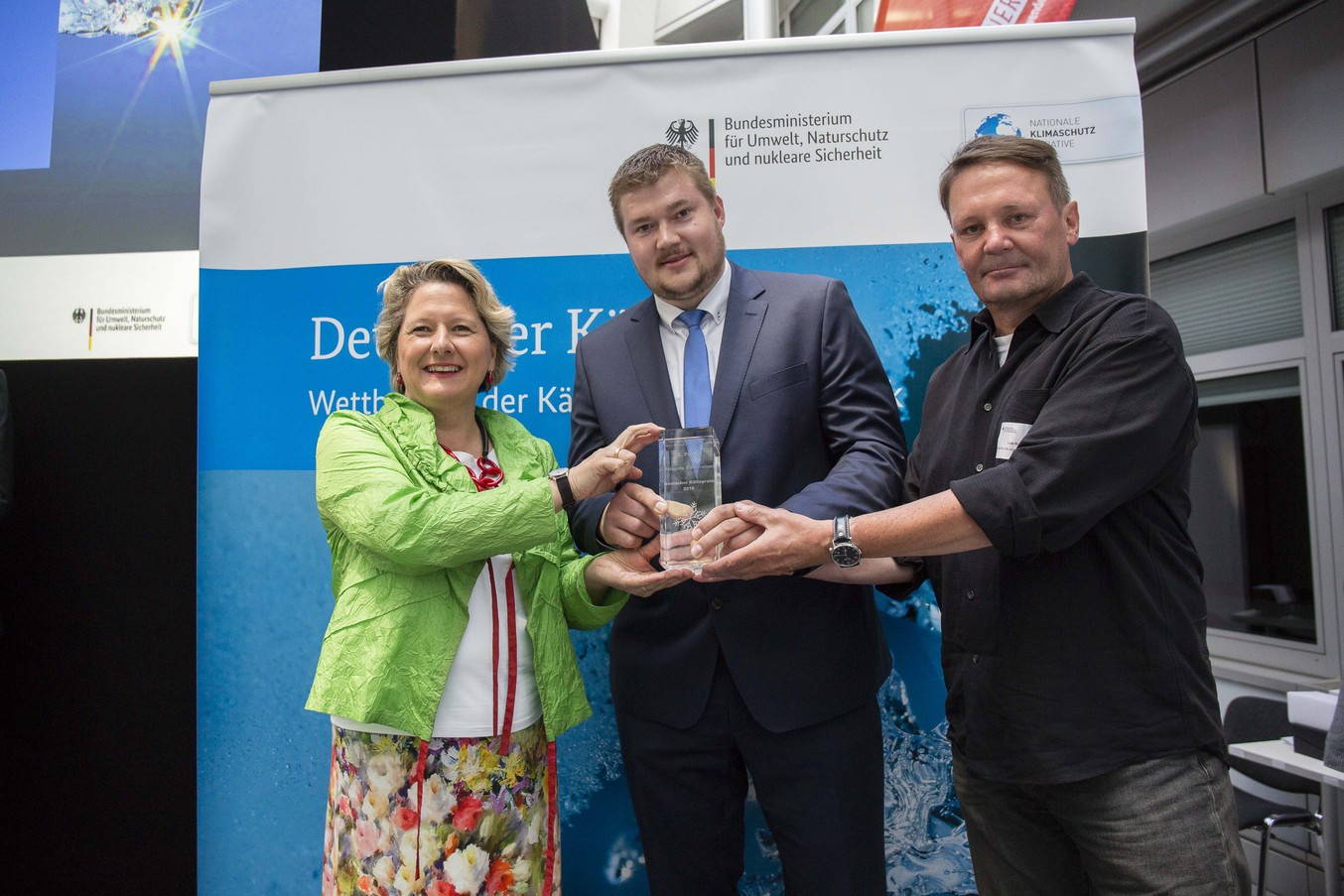German Refrigeration Award 2018 for EAW Energy Facility Construction and the Institute of Air Handling and Refrigeration (ILK)
On May 7, 2018 the Federal Ministry for the Environment, Nature Conservation and Nuclear Safety presented the German Refrigeration Award for the sixth time. Together with its cooperation partner EAW Energy Facility Construction, the Institute of Air Handling and Refrigeration (ILK) was able to score in the highly competitive category „Refrigeration or Air Conditioning Innovation“.
Both enterprises were awarded with the second prize for the development of an innovative absorption refrigeration system using water as an environmental-friendly cryogen.
Absorption refrigeration systems use spare heat from electricity generation, industrial waste heat or solar heat in order to provide cooling energy for climatization and process refrigeration.
With the new system generation WEGRACAL C, which was introduced by EAW in October 2017, the application of compact plate heat transmitters was accomplished for the first time. Thus, the system volume can be reduced by 40% while output remains constant.
More information on the German Refrigeration Award and further award recipients can be found here.

















